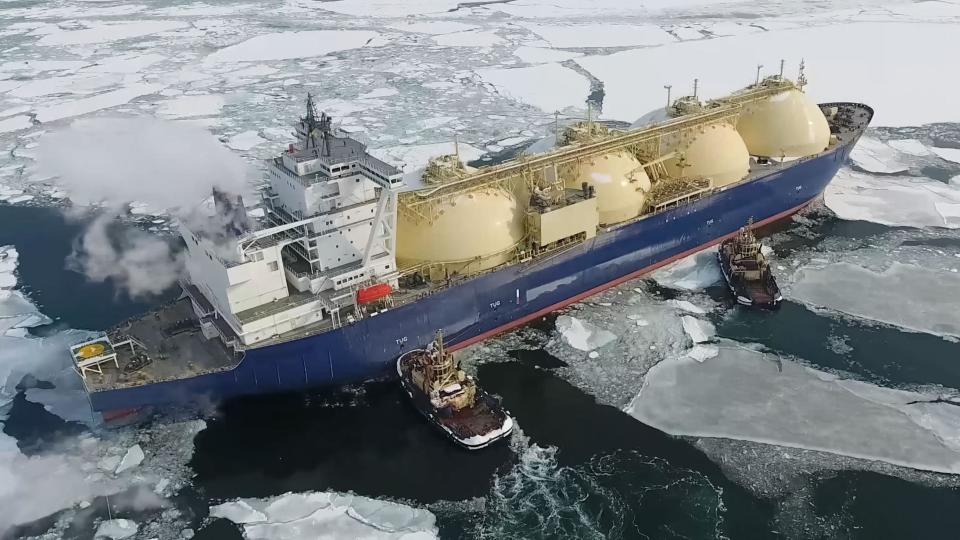Arctic 'dirty fuel' ban for ships comes into force

A ban on the dirtiest and most climate-damaging fuel for ships has come into effect in Arctic waters.
Heavy Fuel Oil (HFO) is a tar-like, thick but relatively cheap oil that is widely used in shipping around the world, especially tankers.
However, HFO is particularly damaging in the Arctic, where the black carbon it emits when burned speeds up the melting of snow and ice.
Campaigners say the ban, while welcome, will make little immediate impact as a series of loopholes will allow the vast majority of ships to use the fuel until 2029.
Produced from the waste left over in oil refining, HFO poses a huge threat to the oceans in general but to the Arctic in particular.
This sludge-like fuel is almost impossible to clean up if a spill occurs.
In colder waters, experts say, the fuel does not break down but sinks in lumps that linger in sediments, threatening fragile ecosystems.
In climate terms, this oil is seen as particularly dangerous, not just producing large amounts of planet-warming gas when burned, but also spewing out sooty particles called black carbon.
“The black carbon is creating the sort of double whammy impact in the Arctic,” said Dr Sian Prior, from the Clean Arctic Alliance group of campaigners.
“It's attracting heat while it's in the atmosphere, and then it settles onto the snow and ice and is speeding up the melting as well.”
The oil was banned from use or transport in the Antarctic in 2011.
Environmentalists have been pushing to expand that restriction to northern waters for years, finally persuading the countries that participate in the International Maritime Organisation (IMO) to enact a ban back in 2021.
The restriction now comes into force in Arctic waters – and while campaigners agree this is progress, they believe there are far too many loopholes that will limit the impact.
According to the regulations, ships that have a “protected fuel tank” will be exempt from the ban.
Countries that border the Arctic will also be able to exempt their own ships from the ban in their own territorial waters.
One of the major players in the region is Russia, which has over 800 ships operating in northern waters. They are not implementing the new IMO regulation.
These waiver exemptions will last until 2029 – their impact is likely to be significant, with the International Council on Clean Transportation estimating that about 74% of ships that use HFO will be able to continue to do so.

Some observers believe that increased efforts to extract oil in the Arctic could see a rise in the amount of HFO in use in these waters, instead of a decrease.
“Oil and gas tankers are a real driver, they're using a lot of HFO in volume,” said Dr Elena Tracy from WWF.
“We are going to see more of oil and gas project developments in certain places such as in the Russian Arctic, and the increase of the use of LNG tankers there will see the volume of HFO go up as well.”
Campaigners argue that alternative fuels exist, and they hope the shipping industry and Arctic shipping nations will move to take the ban seriously.
They point to Norway as an example of what can be achieved.
The Norwegian government has already implemented a strong ban on HFO around the Svalbard archipelago.
In recent days an Irish ship was prosecuted for using HFO in the region and fined one million Norwegian kroner ($93,000; £74,000).
Campaigners say that this type of action is what is needed right now – as the Arctic does not have the luxury of time.
“Scientists are already saying that we're likely to see the first ice-free days in the Arctic in the 2030s, some say even as early as 2030,” said Dr Prior.
“We really need action in the next couple of years to start reducing the black carbon emissions and to start restricting the use of these oils.
“We're really urging the countries to move quicker. We're urging the shipping industry to do the right thing.”


